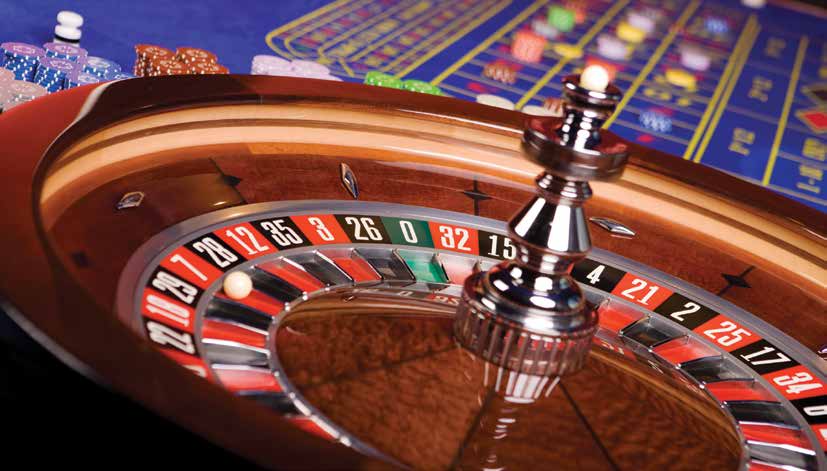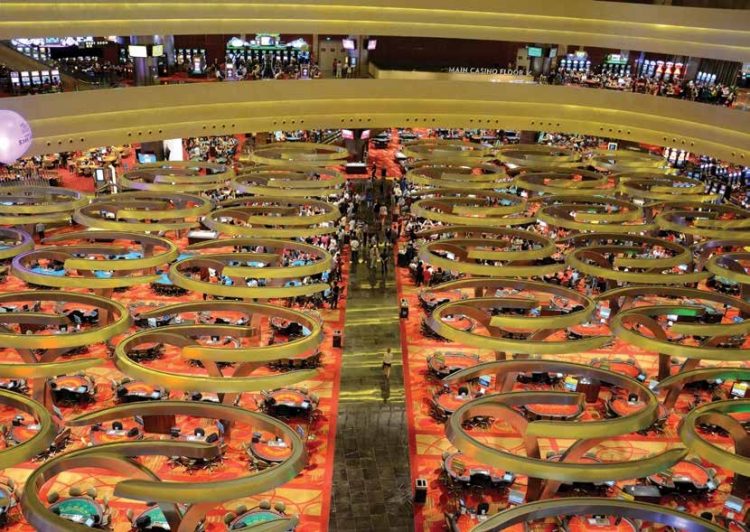Casino marketing expert Steve Karoul explains why problem gambling is such a difficult fix and why we must never stop trying.
By Steve Karoul
What do they all have in common? Probably not too much, but how else do you focus one’s attention on such horrible diseases? One could argue that leprosy and Ebola are not common illnesses but nevertheless their effects can be both devastating and catastrophic. Problem gambling is also an illness that can have catastrophic consequences not only for the victim but also for the innocent families of the victims. Nobody likes to talk about negative topics and therefore it is often easier to avoid talking about them or even worse, pretend they do not exist.
However, many people are talking about problem gambling today including government regulators in Asia who have the power to reshape the gaming industry. Consequently, it may be better for everyone, including casino operators, to become even more proactive when it comes to problem gambling issues. The recent tragedy at Resorts World Manila in the Philippines focused global attention on it after 38 people died because of a disturbed individual who had problem gambling issues. Japan is another country now heavily focused on problem gambling issues as its government begins to finalize its new IR Implementation Bill.
Numerous government agencies in Asia are looking more closely at problem gambling and the social issues attributed to it. Problem gambling will become an even more serious issue for casino operators in Asia in the future.
So, who really cares about problem gambling? I do, for one, and fortunately most “responsible” casino executives and managers also care. In recent years the casino industry overall has begun to take a far more proactive approach to the way they handle problem gambling. Senior management does seem to understand the various issues. However, as an industry – especially in Asia – we still have a way to go to properly educate as many of our employees as possible.
I used the term educate rather than train for how we deal with our employees. We train horses and we train dogs but we educate people. An ongoing progressive educational program about problem gambling is one of the keys to success. The gaming industry in general needs to be commended on their efforts in recent years to properly teach their staff to recognize the early signs of problem gambling, allowing management an for intervention before it is too late.

I do not believe that the problem is as large as casino adversaries would like to portray but it is still a serious problem. However, I also strongly feel that it is large enough to warrant serious measures to help reduce it and to help its victims before catastrophes similar to what the world recently witnessed at Resorts World Manila occur. But that same horror could have happened at any casino in Macau or in Asia. We as casino operators and managers have the ability to help some of the victims of problem gambling if we want to make the effort. Unfortunately we cannot help them all.
The two key issues are educational and economic. The educational aspect is easy. There are lots of excellent educational materials available that can be incorporated into an employee education program about problem gambling. It doesn’t matter how large or how small the casino is. The issues revolving around problem gambling are universal. Unfortunately, not all casinos around the world today view problem gambling in the same light. In many smaller casinos the loss of a “good player” could negatively impact the financial results of that casino. Therefore, they may tend to look the other way and ignore a potential problem gambling issue. I have witnessed this in many smaller casinos throughout Asia as well as in other parts of the world.
To me, that operating philosophy is wrong both economically and morally.
There is an old expression that says, “Don’t kill the goose that lays the golden egg”. In other words, if you don’t practice education and some form of supervised intervention to try to identify and help a problem gambler in the early stages of their illness, that gambler will more than likely self-destruct. During the self-destruction phase many other horrible things are often occurring in sync with the illness such as theft to help support their gambling habit or addiction, anti-social behaviour, divorce and possibly suicide. All of these can leave a very negative impression on the public about how callous and non-caring the “casino” was toward their sick customer. This can potentially be a real PR nightmare for casino operators.
Problem gambling is a very sensitive subject because it is nebulous and not easy to fix. There is no one simple solution for problem gambling. I have listened to numerous casino executives tell me that they cannot and will not offend their regular good customers by asking them too many personal questions.
I am sorry but I cannot accept that type of excuse. I agree that we are not mind-readers and that we do not have any crystal balls we can look into to help us determine if our customer has a problem. That is not the issue. The real issue is “know your customer.” Problem gambling does not happen instantaneously. It is an illness that develops slowly and progressively gets worse. Consequently, we will never be able to totally eliminate problem gambling but with care and dedicated programs, we can help many of the victims – who are often regular steady customers.

Using the “know your customer” approach is a big step in the right direction. In addition, by taking the time and making the effort to know your customers you are also building relationships with them. These personal relationships help to build customer loyalty and will enable you to privately approach anyone you suspect may have a gambling problem. You have a much greater for success with problem gamblers that know and trust you. Most of them know that you are sincerely trying to help them and will react positively to your approach.
How you actually approach a problem gambler is very important. There is a big difference between approaching someone and confronting someone. I worked for many years as the Vice President of Casino Marketing for the largest casino in the world (Foxwoods Resort Casino in Connecticut, USA). It is a huge casino with an equally large customer base. Therefore, it was impossible to personally know all of our customers. However, Ken Davie, our Vice President of Table Games at the time, developed a comprehensive educational training program for our casino division (which is detailed in the breakout with this column).
I found in the majority of the cases the customer was both relieved and appreciative of our concern for their well being. By surfacing the potential problem and bringing it out into the open, Ken or I were usually able to get the problem player to both recognize and admit to their problem. In addition, we were often able to get them to ask for help and to voluntarily ask to have themselves excluded from the casino. I made sure they fully understood they would not be allowed back into the casino from that point forward for a pre-set period.
However, this process did not always go smoothly and some customers went into denial and quite vocally objected to my “accusations”. What do you do at this point? Basically, you have two choices: 1) allow the customer to continue playing in the casino but also keep a close eye on him or her, or 2) proceed with an involuntary exclusion banning them from entering the casino. I have done both over the years.
Regrettably, many of the customers that I allowed to continue to gamble actually went on to self-destruct. It was sad to watch; many lost everything including their businesses, homes, cars and marriage. My tolerance diminished over the years and I tended to go more with my gut feelings and sometimes excluded players on an involuntary basis once we concluded the customer really did have a gambling problem. We always offered the player recommendations for additional help. Whether they used it or not is difficult to judge.
Some customers actually came back at a later date to thank me and others basically told me to go to hell and took their business to another casino that was more liberal or tolerant or unaware of their problem. Unfortunately many of those customers eventually went on to self-destruct as well, hurting both themselves and their families. With reference to their friends, I was often very pleasantly surprised when these same friends who were also our customers would come to see me about their friend’s gambling problem. In summary, they said, “Thanks for caring about us.” You can care too. Good luck.
































